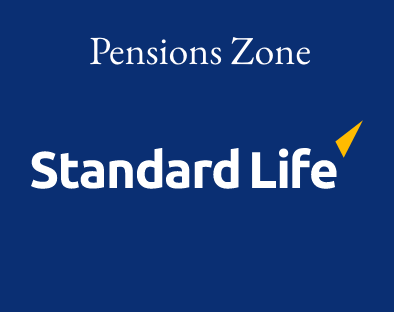ESG funds have become ‘flavour of the month’ but in many ways the flood of fund launches with ESG/Sustainable/responsible investing tags, is a wild frontier for investors and advice firms need to ensure they know exactly what their clients are walking into, says ATEB Consulting’s Steve Bailey.
 We have written before about ‘ethical’ or ‘sustainable’ investing, most recently here, in recognition of the increasing presence of and interest in ESG funds.
We have written before about ‘ethical’ or ‘sustainable’ investing, most recently here, in recognition of the increasing presence of and interest in ESG funds.
The rules that were to have been implemented this year, requiring advisers to consider clients’ sustainable investment preferences, did not materialise as a result of the UK withdrawal from the EU. Nonetheless, there are government level initiatives around sustainable finance which already affect pension schemes and investment funds. These have led to the fund industry launching ESG funds, almost en masse.
In addition, according to trade media reports, advisers are finding there is a greater interest in ESG funds and many are already incorporating these in client portfolios where appropriate.
Wild frontier
In the midst of all this very positive and feel good news, we have to report a word of caution. The current state of the ESG investment market presents, in many respects, a dangerous wild frontier-type scenario for advisers and their clients. That this is the case is made clear from the letter that the FCA recently sent to investment firms under the heading “Authorised ESG & Sustainable Investment Funds: improving quality and clarity”.
The concerns are summarised in the opening paragraph.
“We have seen numerous applications for authorisation of investment funds with an ESG or sustainability focus. A number of these have been poorly drafted and have fallen below our expectations. They often contain claims that do not bear scrutiny. Also, we would have expected questions raised at the authorisation stage to have been asked (and addressed) in the product design phase. Such applications are likely to fail to meet the applicable requirements as set out further in the annex to this letter. We expect to see material improvements in future applications. We also expect clear and accurate ongoing disclosures to consumers where funds make ESG-related claims, and we want to see funds deliver on their stated objectives and/or strategy. We include in this letter a set of guiding principles that explains our expectations in this area.”
The letter includes a number of stylised examples of applications for authorisation of investment funds with an ESG/sustainability focus that the FCA considers fell below expectations:
- A proposed passive fund had an ESG-related name that was found misleading as it was looking to track an index that did not hold itself out to be ESG-focused. It also had very limited exclusions from the index, based on high-level ESG criteria.
- A fund application claimed to have a strategy to invest in companies contributing to ‘positive environmental impact’. The fund intended to invest predominantly in companies that, while reporting low carbon emissions, would not obviously contribute to the net-zero transition. The FCA had expected to see a measurable non-financial objective alongside the financial objective or strategy with information on how that impact would be measured and monitored.
- Instances where it was challenging to reconcile the fund’s proposed holdings with statements made setting expectations for consumers. One example was a sustainable investment fund containing two ‘high-carbon emissions’ energy companies in its top-10 holdings, without providing obvious context or rationale behind it (eg, a stewardship approach that supports companies moving towards an orderly transition to net zero).
Guiding principles
The letter includes a reminder of applicable rules that investment firms must satisfy and a set of guiding principles for firms to adhere to. The guiding principles comprise an overarching principle and three supporting principles that focus, respectively, on ‘design’, ‘delivery’ and ‘disclosure’. Each principle is accompanied by a set of ‘key considerations’, which aim to add clarity.
- Overarching principle: Consistency
A fund’s ESG/sustainability focus should be reflected consistently in its design, delivery and disclosure. A fund’s focus on ESG/sustainability should be reflected consistently in its name, stated objectives, its documented investment policy and strategy, and its holdings. - Principle 1. The design of responsible or sustainable investment funds and disclosure of key design elements in fund documentation
References to ESG (or related terms) in a fund’s name, financial promotions or fund documentation should fairly reflect the materiality of ESG/sustainability considerations to the objectives and/or investment policy and strategy of the fund. - Principle 2. The delivery of ESG investment funds and ongoing monitoring of holdings
The resources (including skills, experience, technology, research, data and analytical tools) that a firm applies in pursuit of a fund’s stated ESG objectives should be appropriate. The way that a fund’s ESG investment strategy is implemented, and the profile of its holdings, should be consistent with its disclosed objectives on an ongoing basis. - Principle 3. Pre-contractual and ongoing periodic disclosures on responsible or sustainable investment funds should be easily available to consumers and contain information that helps them make investment decisions
ESG/sustainability-related information in a key investor information document should be easily available and clear, succinct and comprehensible, avoiding the use of jargon and technical terms when everyday words can be used instead. Funds should disclose information to enable consumers to make an informed judgement about the merits of investing in a fund. Periodic fund disclosures should include evaluation against stated ESG/sustainability characteristics, themes or outcomes, as well as evidence of actions taken in pursuit of the fund’s stated aims.
What does this mean for advisers?
While the letter is emphatically aimed at the fund sector, the issues raised hint at the dangers for advisers in the current state of the ESG fund market. As we wrote previously, we believe that, regardless of specific rules requiring consideration of a client’s ESG preferences, advisers should have always been taking these into account just as any other client preference or objective would be. However, in our view, it is probably not sensible to try to exactly match an individual client’s preferences down to too low a granular level. The FCA letter makes clear that it could be difficult to be certain that a fund does what it says on the tin and so promising a client that the fund matches their preference to only invest in funds that are totally carbon neutral and do not include countries x, y and z could well turn out to be a hostage to fortune. Better, we think, to create some well researched funds and portfolios at the firm’s investment process level rather than attempting to do so at an individual client level.
Our view and action points
The FCA’s letter is not a huge surprise. There have been well publicised examples in the last couple of years of greenwashing, with funds claiming green credentials they do not possess in practice. The risk for advisers is how to identify genuinely green funds and the nature of the sustainable element claimed by the fund. This is clearly not a process that can rely totally on glossy fund literature as its sole source. That the FCA is examining funds closely at application time is comforting but advisers need to maintain careful due diligence and research on funds beyond initial authorisation and into real life everyday reality.
Consider how you will implement sustainable investment options as part of your investment and advice process. Download the letter and review the guidance included, which provides a starting point for aspects to research and questions to ask of funds.




































